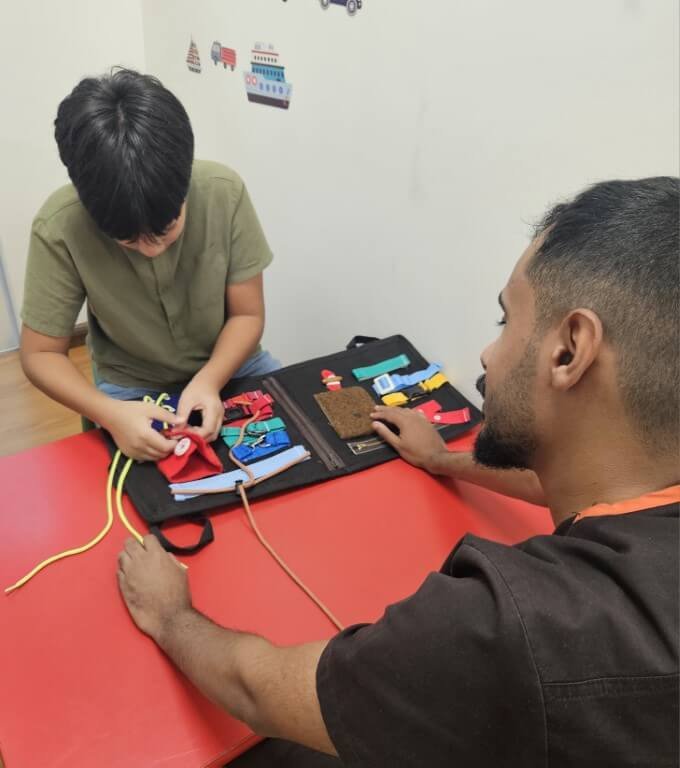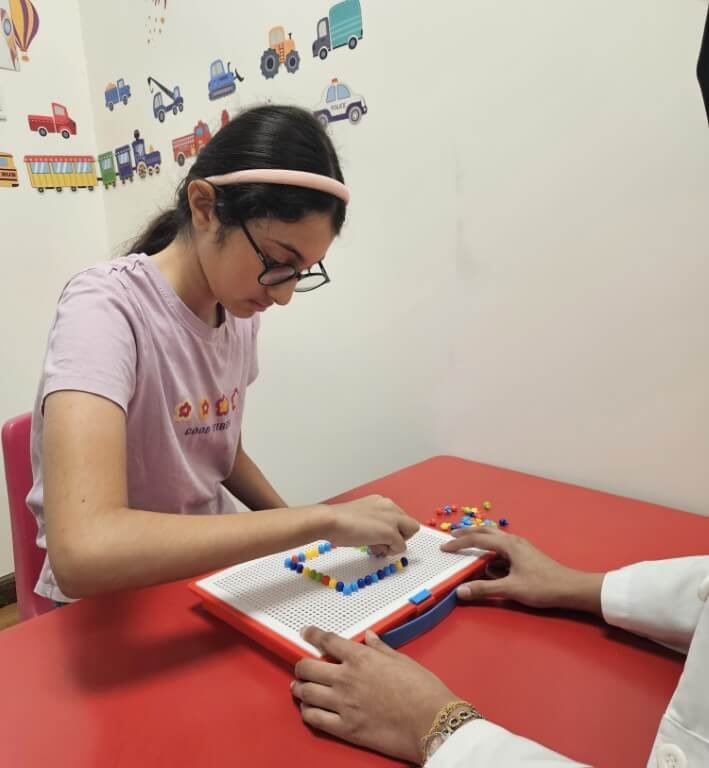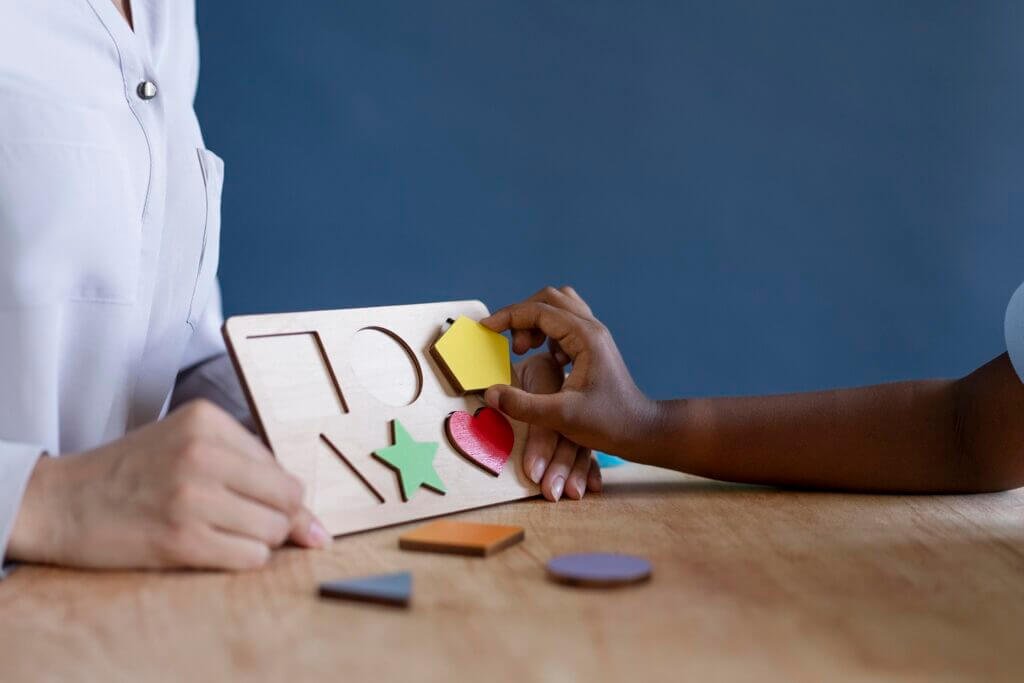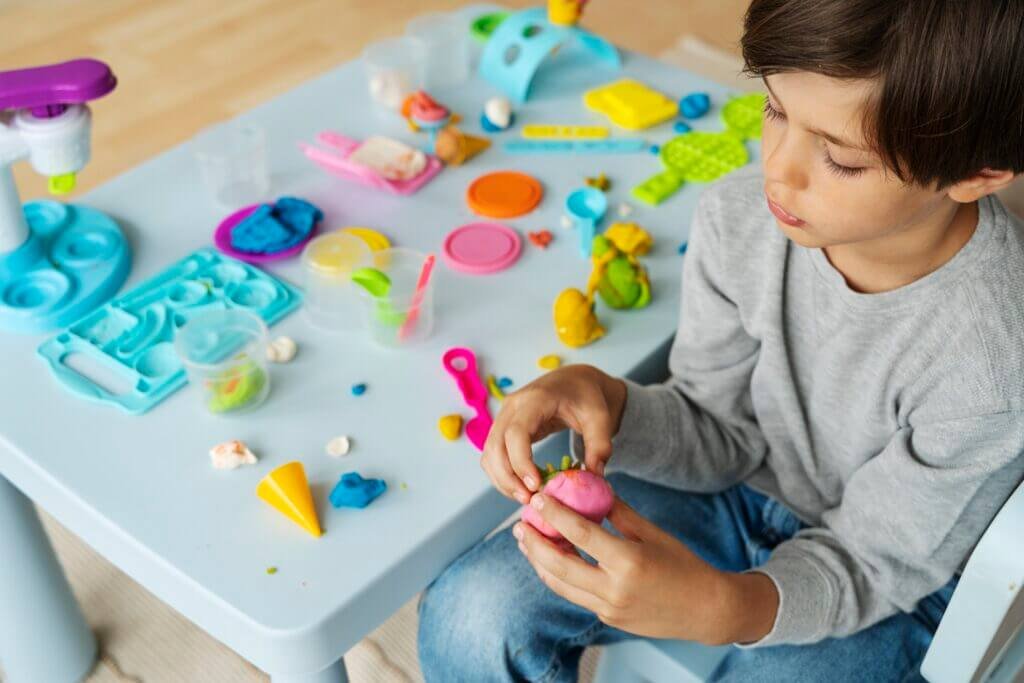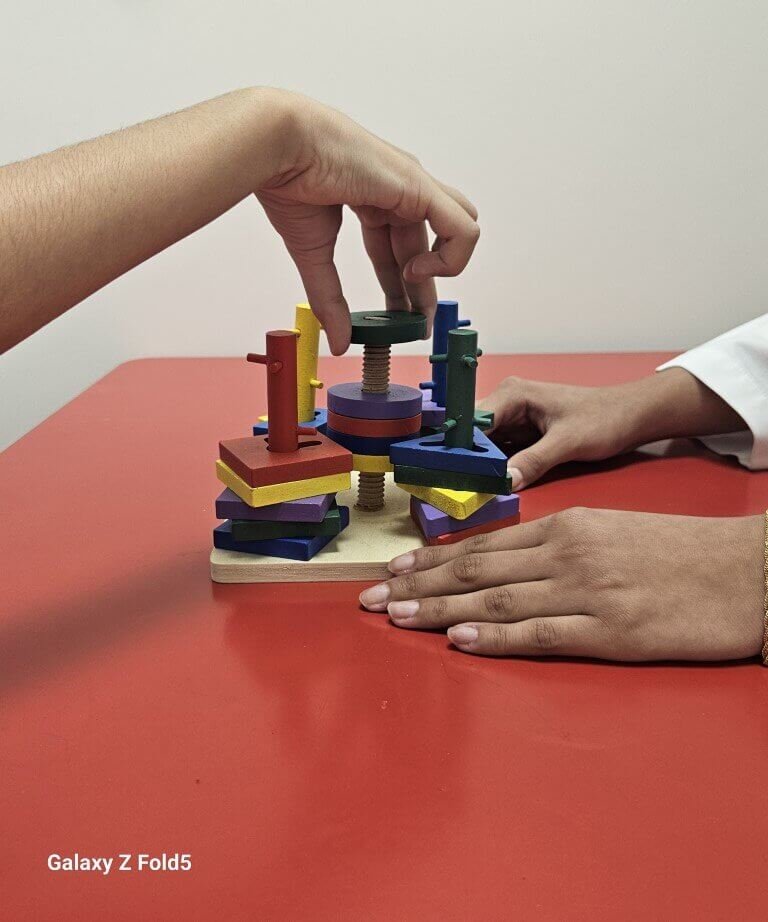
Occupational therapy is a medical specialty that aims to help individuals achieve maximum independence in their daily lives. In the case of children with learning disorders, occupational therapy plays a crucial role in improving their academic abilities and life skills.
Occupational therapy aims to address the difficulties faced by a child with a learning disorder by focusing on motor, cognitive, and sensory aspects.
Here are some of the areas that occupational therapy focuses on:
- Developing fine motor skills: such as gripping a pencil, eye-hand coordination, and controlling small movements. These skills are essential for writing, drawing, and using tools.
- Improving physical stability: Occupational therapy helps improve a child's ability to sit upright and focus on tasks for longer periods of time.
- Sensory regulation: Many children with learning disorders are over- or under-sensitive to sensory stimuli. Occupational therapy works to regulate these sensory responses and improve the child’s ability to focus.
- Develop cognitive skills: such as memory, attention, and logical thinking. These skills are essential for understanding and performing academic tasks.
- Enhancing academic skills: Occupational therapy works to develop basic reading, writing, and math skills.
- Improving life skills: Occupational therapy helps the child develop personal care and social skills.







